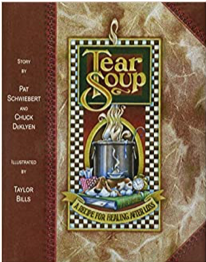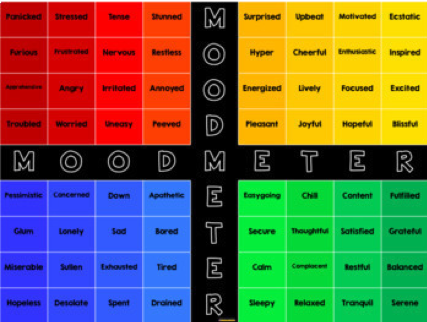
As an educator for all ages for over 36 years, the methodology of Nurtured Heart, growth mindset, and positive psychology tools are just some of the many tools that support the work I do with agencies, schools, and students and families. I include references to many of these in my books but encourage you to explore these well-vetted, strength-based, concrete, and research-supported resources for your work as an educator, mental health provider, parent, or agency leader.
(Have a FAVORITE resource that is your go-to? Send me an email! I’d love to share it out! tammyfhuson@gmail.com )
Social Thinking: A powerful resource of tools for supporting students social development and understanding
Social Thinking is a website created by Michelle Garcia Winner, a gifted speech pathologist who created a team of specialist dedicated to designing concrete tools for educators and parents working with students who struggle with social, cognitive challenges. She offers free webinars and amazing workshops across the country. Her blogs are spot on and her curriculum can be used in classrooms, small groups, and in families. I have several favorites I have used for years (The Incredible Flexible You curriculum – which comes with a series of great books for pre-school and kindergarten; You Are a Social Detective which I have actually adopted and read to up to 3rd and 4th graders as a way to teach the social norms of unexpected vs expected behaviors; and her award-winning Super Flex series of terrific cartoon characters geared for older kids 4th-6th to illustrate limiting mindsets our cognitions can have).
Understood.org: An excellent website dedicated to understanding ADHD and learning disabilities
This website is written by physicians, mental health experts, and psychologists and was originally created for parents of children who have learning or health impairments like ADHD, dyscalculia or dyslexia. Now it has expanded it audience for educators, employers, and even the students, themselves. It is simply brilliant and normalizing. One of my favorite features is a series of videos which illustrate what it might be like to read if you have dyslexia or to track fast information if you have executive functioning delays. Additionally, their blogs provide strong research-supported suggestions for parents and educators on tools and strategies for supporting both academics and social, emotional well-being of your child with an emphasis on strength-based methods.
Tech Talk Tuesdays: A companion podcast and blog series to the Screenagers movies
Dr. Delaney Ruston is both a physician and documentary filmmaker. Her regular Tuesday blogs and periodic podcasts focus on all kinds of topics to engage parents and students in a dialogue about real issues in the world. Her intention is to keep your kids talking to you (“sharing not shaming” is a phrase I borrow from her often!). You can search this page for many topics from screen-focus to mental health to social media to sleep. (Quick plug: Her movies make for phenomenal springboards for discussion for grades 4th and up. The second film is more serious – as it focuses on significant challenges of mental health. Highly recommend both.)
Parent-Teen Connect: An interactive tool for dialoguing about tough topics
Speaking of conversations, this terrific, free tool created by Committee for Children (the creators of the SEL curriculum, Second StepÒ), is designed to promote positive perspective-taking and dialogue between parents (and adults) and youth about core topics that often trigger conflict (communication, screen time, independence, responsibility). I have used this with my middle school students as an activity to get them to ‘walk in their parents shoes’ and to try to imagine what their parents might say or think about certain topics. It has provided rich dialogue and a broader mindset. Fun family activity, as well!
Common Sense Media: The first stop for reviews on all media and tips for parents and educators
This website has been vetting online and media resources for decades. It is a great place to learn more about the games students are playing, the apps your children want to download, the movies that are being released for age-level appropriateness. In addition, for both educators and parents, there are great free webinars and blogs about online tools and research-based responses to challenges in a screen-based learning and playing world. (One of my favorite non-profit donations as I use their resources for teaching digital citizenship, as well!)
Learning for Justice: Formerly Teaching for Tolerance
(a project of the Southern Poverty Law Center)
www.learningforjustice.org/about
This agency has been an active educational non-profit for over three decades. It provides free lessons and resources to educators and families with an emphasis on social justice, equity, diversity, inclusion, LGBQT, and anti-racism. The lessons are phenomenal – and far reaching for both young children and adults.
Healing Brave: A safe space for grief to be explored
www.healingbrave.com/pages/resources
This is a newer resource and different than others here. The creator, Jen Williamson, is a survivor of her brother’s suicide – but is such an eloquent writer, that I have found her words so timely to share with so many over the years. Her blogs are worth signing up for – and while not ‘kid’ focused, grief is something we don’t “get over” we just move forward because we must. I have found Jen’s words to be good springboards in getting youth to talk more about grief and loss.
Tear Soup by Schwiebert, Dekylen & Bills
https://www.barnesandnoble.com/w/tear-soup-pat-schwiebert/1101968561

Emotion Tracking: The Mood Meter (Adult AND Kid Well-Being tool!)
Marc Brackett and the Yale Center for Emotional Intelligence have created a fabulous tool that is used in the RULER curriculum – and now is an app that you can download for just a buck! Based upon decades of research, this tool finds that if we pause and identify how we are feeling (four zones) in levels of high and low pleasantness and energy level, we can increase both our self-awareness AND our self-regulation. These two SEL (social, emotional learning) skills are highly correlated to well-being. Best buck you can spend – just need to set a reminder on your phone to “check-in” regularly. It asks if you want to “stay here” or “shift your mood” and offers fabulous tips to shift as well. I have adapted this tool for my students at the start of class meetings, too!
